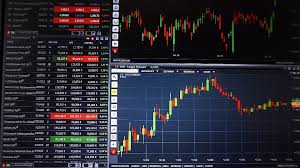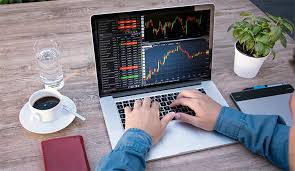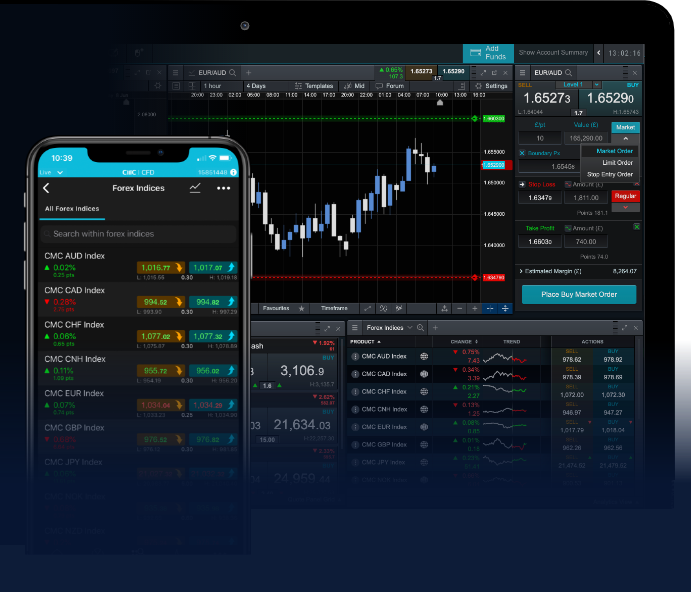
The Ultimate Guide to Forex Trading Online Platforms
In recent years, the financial landscape has evolved dramatically, leading to an increase in popularity of forex trading online platforms. With the globalization of trade and rapid advancements in technology, traders now have access to a vast array of tools and resources to help them navigate the forex market. One such resource is forex trading online platform Morocco Brokers, which offers competitive rates and excellent service for traders interested in operating within or outside of Morocco. This article aims to delve deep into the nuances of online forex trading platforms, providing insights and recommendations for both beginners and experienced traders alike.
Understanding Forex Trading
Forex, short for foreign exchange, is the process of trading currencies from different nations against each other. Unlike stock markets, which operate on a centralized system, forex trading occurs over-the-counter (OTC), meaning that transactions happen between parties directly, without a central exchange. This decentralized nature provides numerous advantages, including lower costs and extended trading hours that cater to global participants.
Key Features of Forex Trading Online Platforms
When considering a forex trading online platform, it is crucial to understand its primary features. Here are some of the key elements to look for:
1. User Interface
A user-friendly interface is paramount, especially for beginners who may find the trading environment overwhelming. An easily navigable platform allows traders to make swift decisions and execute trades efficiently.
2. Security
Security is paramount in online trading. Ensure that the platform utilizes encryption and has a regulatory license to protect your investments. Check reviews and history for any major security breaches.
3. Trading Tools
Advanced trading tools, including technical analysis charts, economic calendars, and automated trading options, can provide valuable insights and enhance your trading strategies. Look for platforms that offer comprehensive analytical tools.
4. Customer Support
Reliable customer support is crucial. Look for platforms that provide assistance 24/7, including live chat, email, and phone support. Fast response times can make a significant difference in the trading experience.

5. Payment Options
Different traders have varying preferences when it comes to payment methods. A good forex trading online platform should offer a diverse range of deposit and withdrawal methods, including credit/debit cards, bank transfers, and e-wallets. Make sure to check the associated fees and processing times.
Choosing the Right Forex Broker
Selecting a forex broker is a critical step in your trading journey. Here are some factors to consider when making your choice:
1. Regulation
Choose a broker that is regulated by a reputable financial authority. Regulatory bodies in different countries enforce rules that protect traders and ensure fair practice within the forex market.
2. Trading Accounts
Brokers may offer various types of trading accounts tailored to different trading styles and capital. Understand the implications of each account type, including leverage, spreads, and margin requirements.
3. Spreads and Commissions
The cost of trading includes spreads and commissions. Be sure to compare these costs across multiple brokers to find one that suits your trading strategy and budget.
Strategies for Successful Forex Trading
While the tools available on forex trading platforms are invaluable, having a reliable trading strategy is equally important. Here are some popular strategies:
1. Day Trading
This strategy involves buying and selling currencies within a single trading day, aiming to capitalize on short-term price movements. It requires a good grasp of technical analysis as well as real-time market tracking.
2. Swing Trading

Unlike day trading, swing trading involves holding positions for several days to capture larger price movements. This strategy is less intense than day trading and allows for more flexible trading arrangements.
3. Scalping
Scalping is a short-term strategy that focuses on making small profits from numerous trades throughout the day. This requires significant concentration and quick decision-making.
4. Position Trading
This long-term strategy is based on fundamental analysis and economic news. Position traders hold their trades for weeks or even months, relying on substantial price shifts over time.
Technological Trends in Forex Trading
As technology advances, so does the forex trading landscape. Here are some emerging trends you should be aware of:
1. Algorithmic Trading
Algorithmic trading allows traders to set specific criteria for buying and selling, letting software execute trades based on pre-set rules. This minimizes emotional trading and increases efficiency.
2. Artificial Intelligence
Machine learning algorithms are being integrated into trading platforms to analyze vast amounts of market data and provide traders with actionable insights and forecasts.
3. Mobile Trading
Mobile applications are becoming increasingly sophisticated, allowing traders to trade on-the-go. With access to real-time data, traders can stay informed and make decisions regardless of their location.
Conclusion
As the forex trading landscape continues to evolve, the importance of choosing the right online platform and broker cannot be overstated. By considering the features highlighted in this article, you can make informed decisions that align with your trading objectives. Whether you are a novice trader or an experienced participant, the right tools and strategies will help you navigate the complex world of forex trading successfully. Engage with the market, learn continuously, and trade responsibly!
